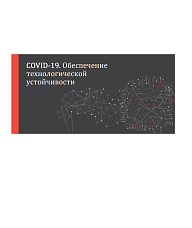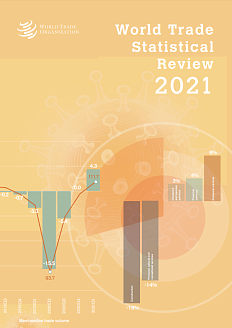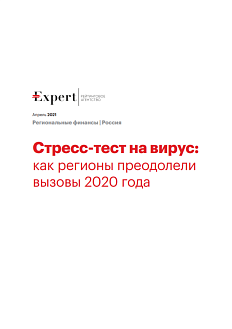PwC experts provide guidance and solutions for IT leaders, CTOs, COOs, or IT sustainability/disaster recovery managers to help identify effective responses to COVID-19 business incidents. The authors highlight common challenges in the field of technological sustainability, and also describe aspects that should be considered when developing a strategy for responding to such incidents.
Roscongress Foundation analysts highlighted the main theses of this research, accompanying each of them with suitable fragments of video broadcasts of panel discussions held as part of business programs of the key events hosted by the Foundation.
Ensuring technological sustainability is a necessary measure to overcome the challenges that companies face due to the coronavirus crisis. Successful application of technologies will help to adapt more effectively in the post-crisis world.
The coronavirus pandemic is affecting people, communities and businesses around the world. According to the authors, it is important that technology professionals understand how they can help deal with the challenges businesses face due to COVID-19.
PwC experts highlight a number of common technology sustainability challenges businesses face due to COVID-19:
· IT specialists. Companies depend on key staff and specific IT practices. Supporting certain technology segments or market sectors that require additional resources can be difficult due to staff age or lack of specialists.
· Work of IT services. Entrepreneurs must ensure the sustainable delivery of IT services in context of disruption and fragmentation. It is important to analyze how well a service desk can handle the increase in the number of remote workers.
· IT supply chain. Delays and non-fulfillment of orders for equipment and services by external parties can have a significant impact on the business. An imbalance between supply and demand for some items (eg laptops, 4G modems) may affect the viability of the disaster recovery plan.
· IT resource management. Leaders must be prepared for changes in customer behavior: this concerns the growing demand from employees for remote access solutions and from customers for digital services, many of which are transferring to remote mode due to self-isolation.
· IT change management. The crisis can cause unplanned re-prioritization of change projects and delays in commissioning. In addition, the perception of some dangers can be distorted, resulting in an increased number of serious incidents and urgent changes.
· IT systems Disaster recovery and IT risks. Against the background of increased risk, an importance of restoring IT systems is growing. There may be a lack of technology controls, or they may not be suitable for long-term changes in working methods.
When developing a strategy for responding to incidents arising from COVID-19, business leaders must address a number of challenges that will enable them to deal with the crisis better.
Due to the coronavirus crisis, companies are facing a number of challenges, including challenges in recruiting IT staff and managing IT resources. In this situation, consequences of such incidents can be worsened by a lack of employees and problems in a supply chain. A response time to such incidents increases. However, rational use of teleworking and teleservice technologies can benefit and solve some of arising problems.
PwC experts suggest that when developing a strategy for responding to COVID-19 challenges, company leaders plan to use available resources to adapt to the current situation, taking various scenarios into account, as well as establishing a contingency reserve by providing additional funds. In addition, an analysis of response measures (connected with reduced operating hours) cost effectiveness should be carried out.
To manage changes in IT, the authors advise to highlight those that can be frozen, as well as those that are extremely important to implement. When managing IT resources, it is recommended to analyze the IT infrastructure to determine the consequences of transferring employees to remote work for the technological complex.
In order to track IT supply chains operation, it is necessary to review the control process of critical third parties such as cloud providers and managed service providers (in particular, review plans for termination of agreements and plans for ensuring business continuity).
When planning a strategy for responding to COVID-19 challenges, it is also important to monitor IT services operation, to assist first and second line IT support services in order to analyze their operating model to work out incoming information about incidents and incoming service requests.
Separately, PwC experts highlight issues related to IT systems disaster recovery in and search for possible IT risks. Key areas of focus for addressing these issues include IT controls reviewing for effectiveness in various scenarios and deep analysis of an IT disaster recovery plan to assess its implementability.
See other materials posted in special sections of the Roscongress Information and Analytical System StayHomeEconomy, Entrepreneurship, IT industry, Digitalization, dedicated to possible ways to stabilize the economy in a pandemic, as well as the development of digital technologies based on new innovative ideas.






